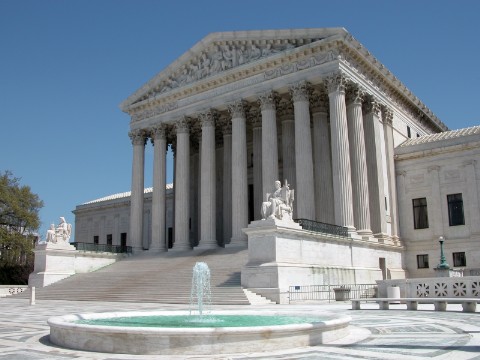Nick Hendrix, a 2012 Judge K.K. Legett Fellow at the Washington Legal Foundation and a student at Texas Tech School of Law.
In its conference today, the United States Supreme Court will consider Cory King’s petition for certiorari in King v. United States. Washington Legal Foundation is serving as King’s counsel of record in his appeal from the U.S. Court of Appeals for the Ninth Circuit. SCOTUSBlog has named the petition to its “Petitions to Watch” section. As we point out in the petition, the Ninth Circuit’s ruling on a key issue of criminal law – the breadth of the federal “false statements” statute – conflicts directly with a Sixth Circuit decision. Such a circuit split is considered a major factor dictating in favor of Supreme Court review.
Mr. King, owner and operator of an Idaho farm since 1986, was charged and convicted of violating the Safe Drinking Water Act (SDWA). State agriculture investigators, who were at the time inspecting Mr. King’s cattle operation, discovered he was injecting melted snow into his wells for crop irrigation without a permit. State investigators ordered King to cease this practice, which he did, and the investigators imposed a substantial administrative fee. The state later relayed this information to federal officials, who felt that Idaho’s punishment was insufficient. The federal officials charged King with violations of the Safe Drinking Water Act (even though no drinking water was affected) and 18 U.S.C. § 1001 (the false statements statute).
King was convicted under both laws. His false statements conviction is especially troubling. The state agriculture investigator was not tasked with federal SDWA enforcement authority, the investigator had no connection to EPA (the federal agency in charge of SDWA enforcement), and Mr. King had no knowledge that the statement would ever be relayed to the federal government. Mr. King was also oblivious to any federal investigation because at the time of the statement, no such investigation was even contemplated, much less commenced. Further, there was no evidence that any of Mr. King’s activities consisted of any interstate activity or had any effect on interstate activity, calling into question the right of the federal government to regulate under its commerce clause power.
Despite these constitutional concerns and radical expansion of the material false statement statute, the Ninth Circuit affirmed the convictions. In affirming, the Ninth Circuit adopted a “subject matter” interpretation of the material false statement statute. Under this interpretation a false statement made to anyone on earth could be deemed to violate the statute if it concerned federal “subject matter” and it eventually made its way to the federal agency in charge of enforcement. Further the continued expansion of federal power under the commerce clause was upheld without much discussion.
The Ninth Circuit’s breathtaking expansion of § 1001 attracted the attention of the National Association of Criminal Defense Lawyers, which filed an amicus brief in support of our cert petition.
We anticipate the Court’s decision on whether to grant certiorari by Monday, June 11.

